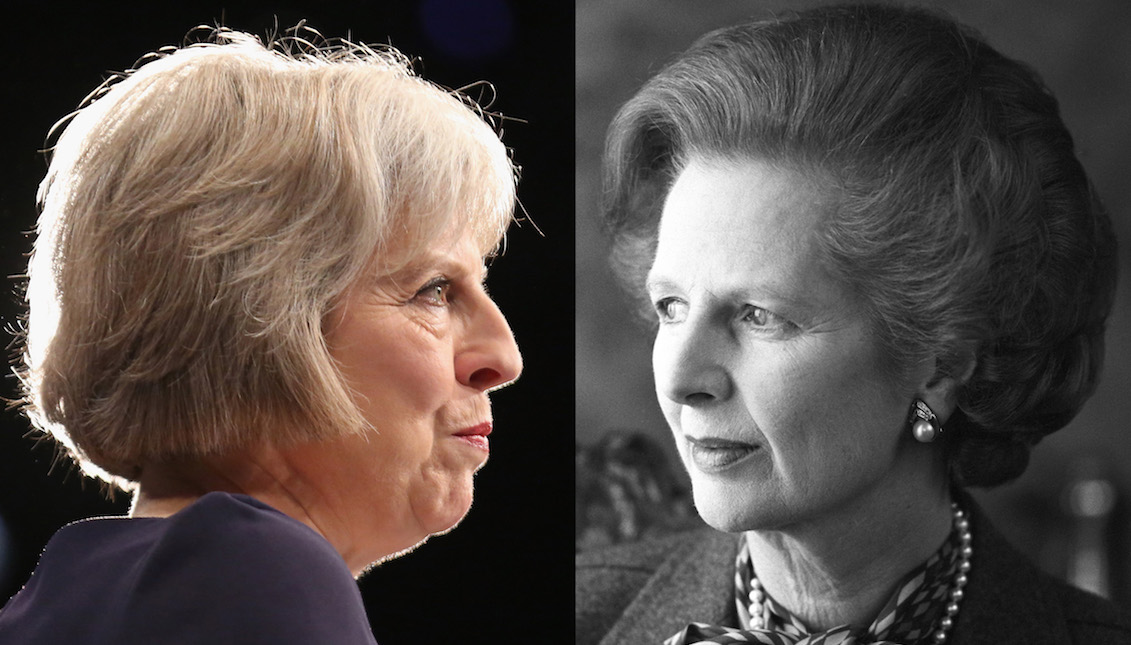
From Thatcher to May, when isolationism breaks a government again
The similarities between the two women who have been the helm of the United Kingdom are irrefutable proof that history is doomed to repeat itself.
"Where there is discord, may we bring harmony;
Where there is error, may we bring truth;
Where there is doubt, may we bring faith;
And where there is despair, may we bring hope."
Those were the words of the Prime Minister of England in May 1979, when she came to Downing Street to take over the country. After eleven and a half years, Thatcher had to resign when her Conservative Party turned its back on her, without having found the harmony she was looking for.
Today, in a repetition of history, the second woman to be Prime Minister of England, Teresa May, announced her resignation, and tearfully admitted a failure that will forever be associated with her administration: not being able to unite the British people behind Brexit.
Margaret Thatcher, known as the "Iron Lady," became the first woman elected to the position and was considered the most powerful woman in the world during much of the eighties.
However, by 1989 - and after having led the country through critical events such as Apartheid in South Africa and the Falklands War in Argentina - the Conservative Party's support and the general approval of her work were worryingly low.
The Labor Party rose in the polls, and by 1990 Thatcher's reluctance to unite the United Kingdom with the European Exchange Rate Mechanism ended up sinking her government.
Almost three decades later, another woman says goodbye to Downing Street, for reasons that are not far apart.
May, Prime Minister of the United Kingdom since July 2016, announced on Friday that she was resigning from the position, after the failure of her negotiations to leave the European Union (Brexit).
RELATED CONTENT
"Back in 2016, we gave the British a choice. Against all predictions, the British people voted to leave the European Union," said May in her resignation speech. "I feel as certain today as I did three years ago that in a democracy if you give people a choice, you have a duty to implement what they decide."
"It will be for my successor to seek a way forward that honors the result of the referendum," she added. "To succeed, he or she will have to find consensus in parliament where I have not. Such a consensus can only be reached if those on all sides of the debate are willing to compromise."
May turned around tearfully and quickly entered the government house, quite differently to what her predecessor, the Iron Lady, did in her turn.
After Donald Trump's victory in the United States, separatism and nationalism have gained ground in the European Community.
Far-right narratives - such as that of Marine Le Pen in France, Santiago Abascal in Spain or Geert Wilders in the Netherlands - barely fail both in national and parliamentary elections, warning of a possible radical change that would emulate the Trump phenomenon in the months to come.
The next visit of the American president to England and his respective meeting with May in the coming days will be only a symbol of all this.
Perhaps, Theresa May's resignation is a breath of fresh air, after all.











LEAVE A COMMENT:
Join the discussion! Leave a comment.